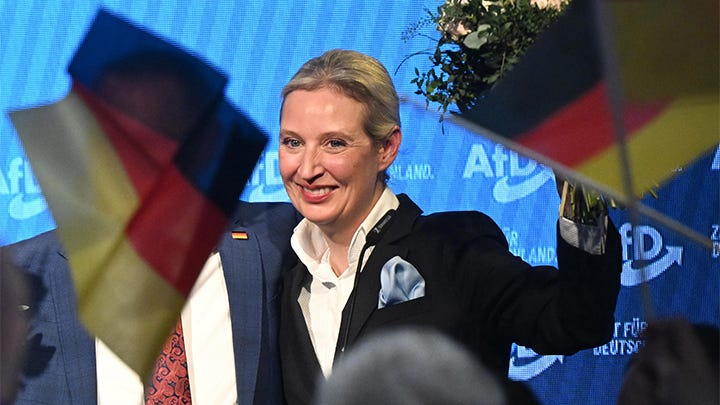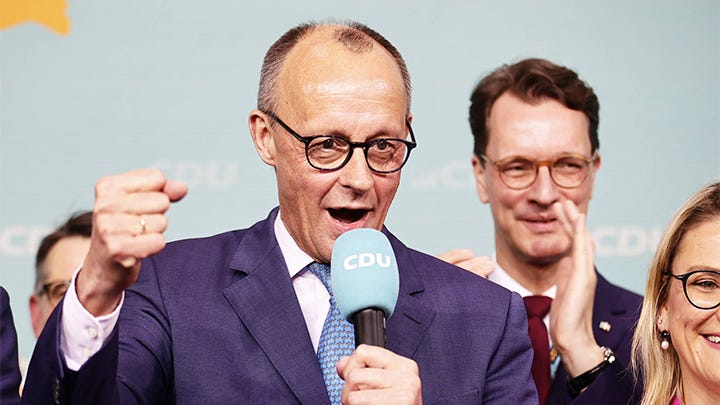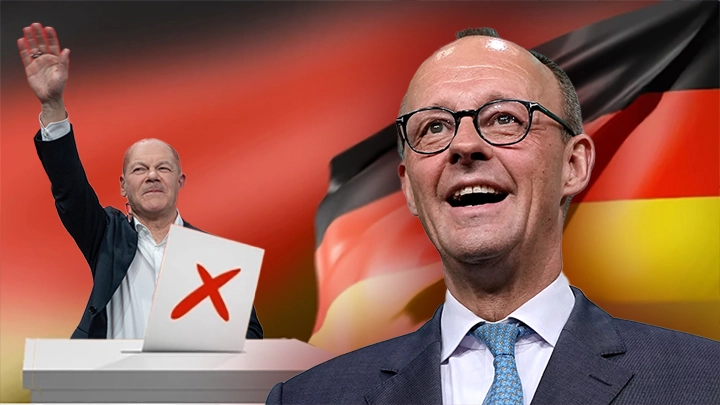Regarding the elections in Germany, Chancellor Olaf Scholz has, of course, lost. However, it is still too early to say that German society is beginning to awaken. After all, the majority went to Friedrich Merz’s party, which is “Christian” only in name. The Christian Democratic Union (CDU) is an entirely liberal political structure, bearing no real connection to Christianity. It is just as globalist as Scholz’s Social Democratic Party (SPD).
Of course, the fact that the Alternative for Germany (AfD) party secured second place, winning over 20% of the vote, is a significant success. This relatively new party puts forward reasonable theses, and any accusations of nationalism or right-wing radicalism against it are nothing more than outright slander.
The AfD represents the interests and sentiments of moderate bourgeois citizens — ordinary German people. Or rather, not just ordinary, but normal, since even ordinary people in the West are now divided. Whereas in the past, they formed the sane majority in any society, with absurd and extremist ideas confined to marginal fringes, today, a significant portion of Western society has descended into outright radicalism and extremism.

Germany’s right-conservative party, the AfD, has, according to its leader Alice Weidel, “firmly established itself in the German political landscape and has never been stronger at the national level.”
The AfD defends the common sense of normal people in Germany against the deranged representatives of other political forces, whether they be the “leftists,” the “Greens,” Scholz’s SPD, or Merz’s CDU/CSU. But overall, the German electorate made an entirely incorrect choice, despite Elon Musk advising them to vote only for AfD. Those who listened to him, or who simply chose AfD based on their everyday experiences, made the right decision. However, this is not yet enough to change Germany’s trajectory.
Unfortunately, any talk of a Russia-Germany alliance remains premature. The globalists indeed fear our rapprochement, but with a Germany led by Merz, no such alliance is possible. However, with the AfD, which has secured over 150 seats in the Bundestag (German parliament), we must undoubtedly seek cooperation. These are rational, constructive, and relatively progressive people — not strictly conservative in the traditional sense. And Russia, as the stronghold of common-sense politics, must maintain good relations with all forces that stand for reason.

Friedrich Merz is an experienced politician and a typical globalist. The CDU is a completely liberal, globalist political entity with no genuine ties to Christianity.
As for the future of the new chancellor, Friedrich Merz, I must reiterate — he is a typical globalist. Moreover, he believes that it is now necessary to create a European front to counter an increasingly rational America (whether this is temporary or permanent remains to be seen). In this sense, he is completely irrational, opposing Russia, which is oriented towards common sense, as well as an America that is gradually moving in the same direction.
Therefore, I do not believe any form of Russia-Germany alliance is possible in the near future. It is far more likely that we will be able to build a model of allied cooperation with Trump than with these European degenerates, who are desperate to save the crumbling global liberal order at any cost.
(Translated from the Russian)







